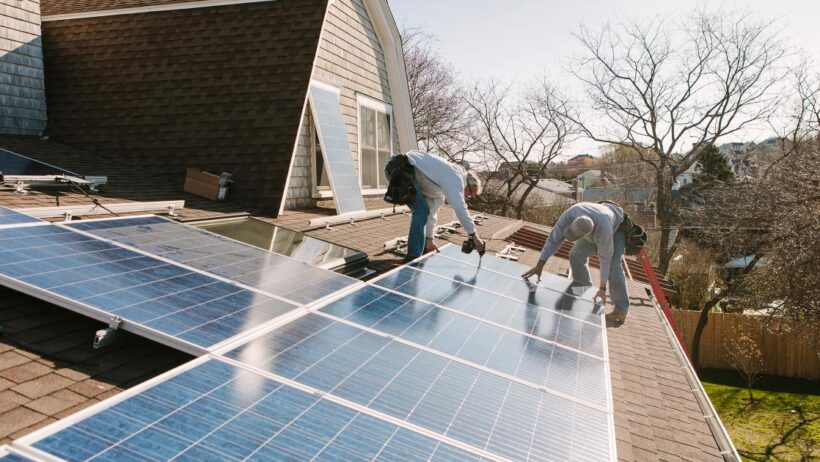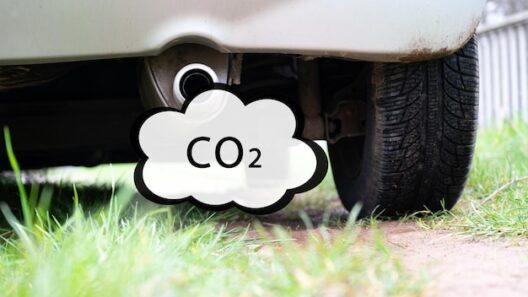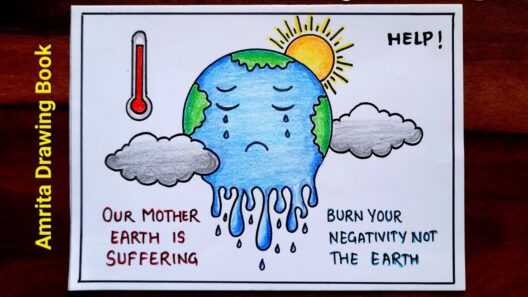Global warming is an urgent issue that threatens the very fabric of life on Earth. The world is in a precarious state, and each one of us has a role to play in this critical fight. However, confronting such a daunting challenge may seem overwhelming. The truth is that simple changes can lead to substantial impacts. Here, we will explore actionable steps both individuals and communities can undertake to mitigate this pressing crisis.
Recognizing the gravity of our situation is essential, but action is crucial for change. Let’s delve into how adopting certain behaviors can serve as a catalyst for environmental preservation.
Transforming Your Energy Consumption
Energy use is one of the single largest contributors to global warming. Transitioning to renewable energy sources is paramount in curtailing carbon emissions. There are various steps you can take within your own household that not only reduce your carbon footprint but also promote sustainability.
Firstly, consider the energy source powering your home. Many utility companies now offer renewable energy options, such as wind or solar power. Choosing these alternatives, even in part, can significantly diminish your contribution to greenhouse gases.
In addition to changing the source of your energy, adopting energy-efficient appliances can amplify your impact. Look for appliances bearing the ENERGY STAR label, as they are certified to use less energy than their conventional counterparts. Swapping incandescent light bulbs for LED varieties is another manageable change that pays off over time — they consume up to 75% less energy.
Moreover, become mindful of your everyday energy consumption. Simple habits like turning off lights when leaving a room, unplugging devices not in use, and utilizing natural light can drastically cut down on electricity use. By fostering an awareness of our individual energy consumption patterns, we empower ourselves to make thoughtful adjustments.
Redefining Transportation Habits
Transportation represents a significant slice of the global carbon emissions pie. Rethinking how we commute can lead to transformative outcomes for the environment. While many choose to drive individual vehicles, it’s worth exploring alternatives that are not only eco-friendly but also foster community connections.
Opt for public transport whenever possible. Buses and trains are not only designed to accommodate more passengers but also produce fewer emissions per person compared to private vehicles. If you live in a city conducive to walking or biking, take advantage of these options for short-distance travel. Not only does this cut down on carbon emissions, but it also promotes a healthier lifestyle.
Carpooling is another beneficial alternative. By sharing rides with fellow commuters, fewer cars are on the road, which translates to less congestion and reduced emissions. In situations where longer travel distances are necessary, consider investing in an electric or hybrid vehicle, which can significantly lower your carbon footprint in the long run.
Championing a Plant-Based Diet
What we choose to put on our plates has a significant impact on the environment. The food production system contributes to deforestation, water use, and greenhouse gas emissions. Shifting toward a plant-based lifestyle can dramatically reduce your carbon footprint.
Begin by incorporating more plant-based meals into your weekly diet. Even small changes, such as designating a few meatless days, can foster significant improvement over time. Focus on whole foods — fruits, vegetables, legumes, and grains — as they are not only healthier options but also have a lesser environmental impact compared to animal products.
Additionally, opt for local and organic produce when feasible. Buying in season from local farmers not only supports the local economy but also eliminates the transportation emissions tied to food shipped from afar. Furthermore, engaging in community-supported agriculture (CSA) programs can be an excellent way to ensure a steady supply of fresh, seasonal produce while promoting sustainable farming practices.
Advocating for Systemic Change
Individual actions are indispensable, but they must be combined with wider systemic shifts to drive significant progress in combating global warming. Advocacy plays a crucial role in this endeavor. It involves pushing for policies that encourage sustainable practices and hold corporations accountable for their contributions to climate change.
Engage with local leaders and representatives. Attend town hall meetings to voice your concerns about environmental policies and urge your community to adopt greener initiatives. Support legislation aimed at curbing fossil fuel use, incentivizing renewable energy investments, and promoting sustainable agriculture.
Supporting organizations dedicated to environmental protection can also amplify your impact. Many nonprofits focus on climate advocacy, raising awareness, and pushing for crucial legislative changes. By donating time or resources to these organizations, you contribute to a collective voice that can stimulate action on a larger scale.
Fostering Environmental Awareness
Ultimately, education is a powerful tool in the fight against global warming. Cultivating awareness within your community can drive collective action and inspire others. Host informational workshops that enlighten your peers about climate issues, such as the importance of reducing waste, conserving water, or supporting local ecosystems.
Utilize social media platforms to share knowledge, articles, and personal experiences related to sustainability. Encouraging dialogue fosters a culture of care and concern for our planet. Every conversation, no matter how small, can plant a seed that may grow into significant changes.
In conclusion, while the challenge of global warming may appear insurmountable, it is within our capacity to enact meaningful change through simple, yet effective actions. Each decision we make contributes to a broader narrative of sustainability. Together, through an amalgamation of personal accountability, advocacy, and education, we can forge a path toward a greener, healthier future for our world. A shift in perspective is essential — recognize that you are not just an observer in this critical moment but an active participant in safeguarding our planet.







